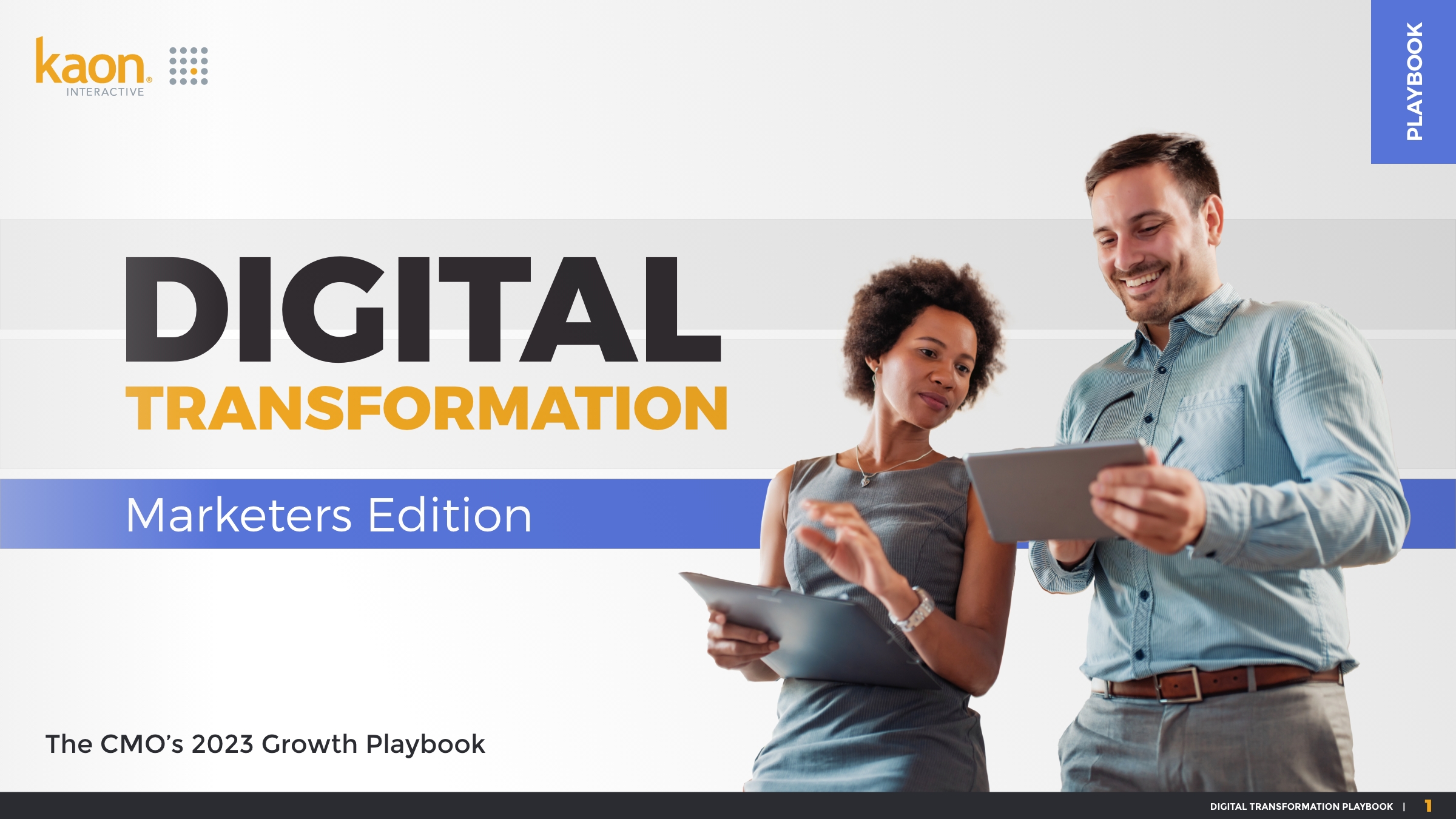blog
How is Engagement Marketing Changing B2B Sales?
Estimated Reading Time: 3 minutes

Traditionally, B2B sales and marketing collaboration has been limited to static marketing collateral and lead handoffs. The marketing and sales teams each had defined roles in the business development process, which they owned. The now-tired analogy of marketing throwing prescribed content and tools over the wall expecting sales to catch and run with them was true.
Fast forward to now.
Enterprises are reconsidering customers’ expectations in the buying process. Customer experience – what they want, not what you want to give them – is paramount. Buyers expect more from companies, according to Make Music, Not Noise by Accenture.
“Customer expectations for personalized experiences and end-to-end solutions are significantly higher than they were just a few years ago according to 73 percent of business-to-business (B2B) executives.”
— Make Music, Not Noise (Accenture)
B2B Customers increasingly are researching and evaluating solutions extensively before engaging with a salesperson. The increase in data, reviews, and digital information empowers buyers to select or disqualify vendors independently.
Sellers increasingly find themselves limited in their ability to influence the sales process in this new ecosystem. Additionally, selling complex products and services magnifies these challenges.
The existence of sophisticated buyers doesn’t diminish the need for a sales team. It increases the need for sales and marketing alignment to simplify complex messaging, engage customers wherever they are with personalized experiences, and guide them through the sales process.
Meeting the demand for personalized experiences requires a paradigm shift in how marketing messages are delivered. Marketing must produce dynamic, immersive environments that empower customers to control their learning experience while still providing a clear, differentiated value story.
As customers self-navigate through the personalized experience, sellers act as consultants to uncover challenges and solve problems.
The next evolution in customer experience is here, and we call it Engagement Marketing.
Engagement Marketing gives your audience the power to explore. It takes passive, one-directional content and transforms it into collaborative, interactive experiences.
Adopting Engagement Marketing and Sales means not just transforming content but transforming the entire process of how you communicate with internal and external audiences.
Engagement Marketing transforms how companies train sales teams to communicate clear, value-driven stories that help customers understand complex solutions, delighting customers and shortening sales cycles.
Thermo Fisher Scientific converts 50% of their inbound leads using interactive, 3D product tours on their website instead of static images or models and videos.
Siemens qualifies leads better with persona- and vertical-driven interactive storytelling.
Natus sells highly-complex imaging equipment without physical product demos. The photo-realism and animations of their digital product tours are so accurate and illustrative that customers are enabled to make informed buying decisions.
DXC Technology reduces its sales cycle and costs using a collaborative sales and buyer enablement application that increases customer engagement and excitement.
How are you capturing the attention and addressing the needs of today’s sophisticated buyers? Equip your sellers with Engagement Marketing and Sales tools that help you influence customers while giving them control of their buying journey.
Are you interested in learning more?
Get your copy →

Smart marketing leaders know digital transformation is an ongoing process vital to surviving recessions. Learn how they’re using technology to meet evolving buyer demands.



